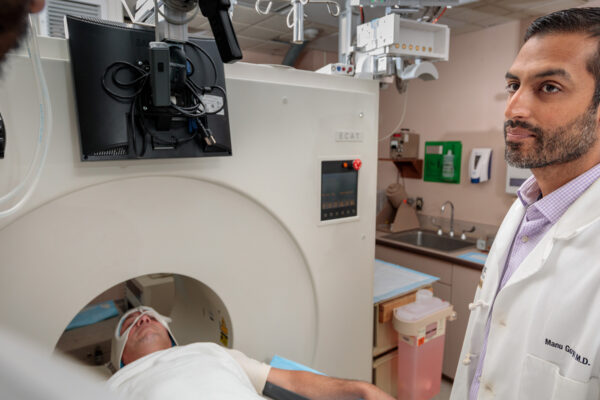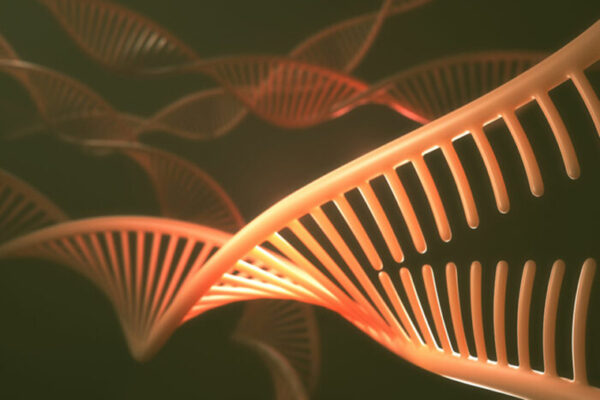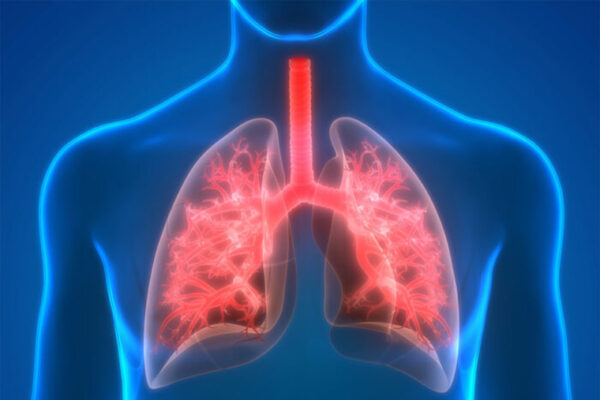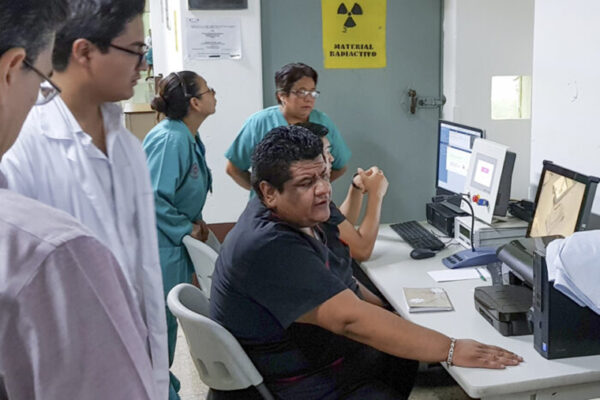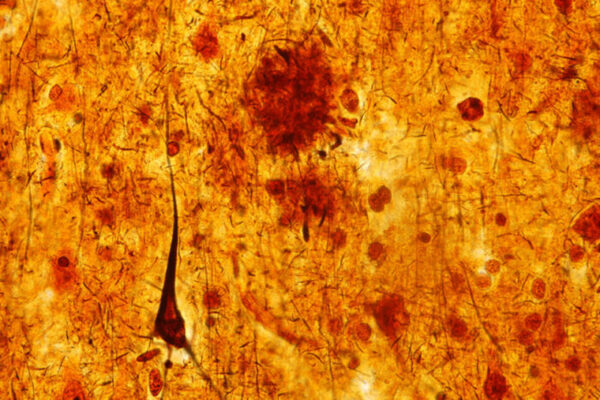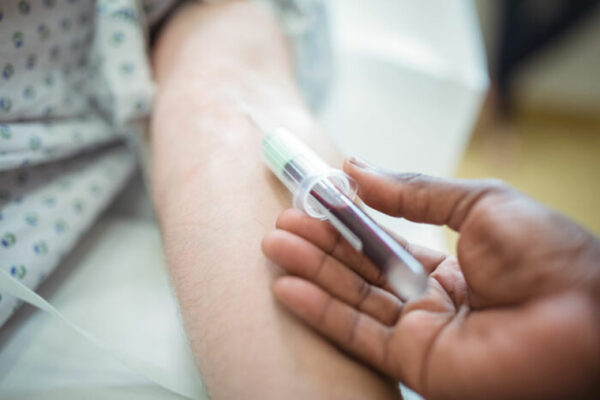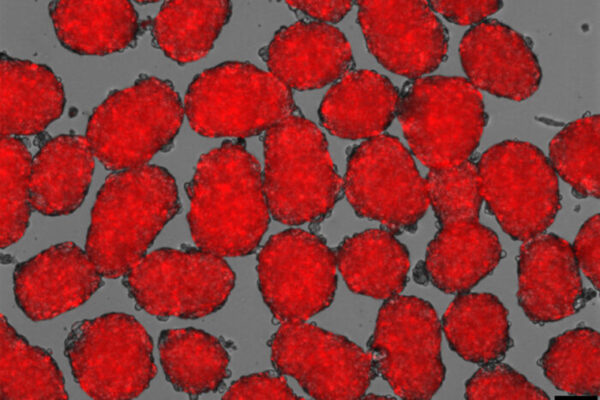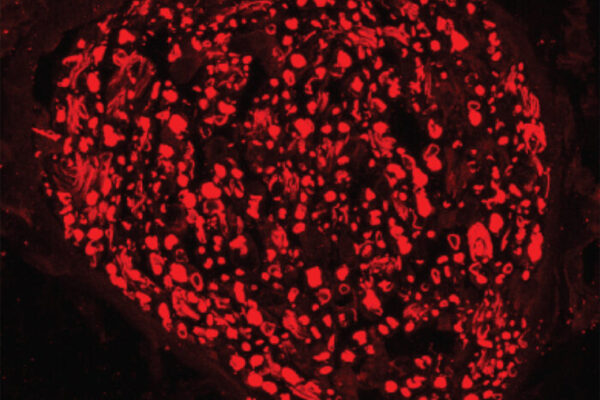Women’s brains appear three years younger than men’s
A new study from the School of Medicine finds that women’s brains appear to be about three years younger than men’s of the same chronological age, metabolically speaking. The findings could be one clue to why women tend to stay mentally sharp longer than men.
Drug target identified for chemotherapy-resistant ovarian, breast cancer
Researchers at the School of Medicine may have found a path toward improving the effectiveness of chemotherapy in people with breast or ovarian cancer caused by defects in one of the BRCA genes. The researchers identified a pair of genes that operate in parallel to BRCA and may increase susceptibility to chemotherapy drugs.
New clues discovered to lung transplant rejection
Researchers at the School of Medicine have discovered clues to a particularly deadly form of rejection that can follow lung transplantation. Called antibody-mediated rejection, the condition remains impervious to available treatments and difficult to diagnose. The researchers have identified, in mice, a process that may prevent the condition and lead to possible therapies to treat it.
Teitelbaum awarded 2019 King Faisal International Prize in Medicine
The School of Medicine’s Steven Teitelbaum, MD, has been awarded the King Faisal International Prize in Medicine for his work on bone biology. The award recognizes scientists whose work has major benefits for humanity.
Modernizing radiation therapy in Guatemala
With the help of a grant from the U.S. Agency for International Development, an international team that includes scientists from the School of Medicine is poised to improve cancer care in Guatemala with new state-of-the-art radiation therapy equipment.
Sleep deprivation accelerates Alzheimer’s brain damage
A study in mice and people from the School of Medicine shows that sleep deprivation causes tau levels to rise and tau tangles to spread through the brain, accelerating Alzheimer’s brain damage.
Blood test detects Alzheimer’s damage before symptoms
A simple blood test reliably detects signs of brain damage in people on the path to developing Alzheimer’s disease – even before they show signs of confusion and memory loss, according to a new study from the School of Medicine and the German Center for Neurodegenerative Diseases.
New hope for stem cell approach to treating diabetes
By tweaking the recipe for coaxing human stem cells into insulin-secreting beta cells, a team of researchers at the School of Medicine has shown that the resulting cells are more responsive to fluctuating glucose levels in the blood. The finding may lead to a new approach to treating diabetes.
Gene therapy blocks peripheral nerve damage in mice
In a new study from the School of Medicine, scientists have blocked the destruction of nerve axons in mice, a step toward helping patients with various neurodegenerative disorders.
New strategy may curtail spread of antibiotic resistance
In studying a bacterium that causes disease in hospitalized people, researchers at the School of Medicine have figured out a key step in the transmission of antibiotic resistance from one bacterium to another. Their insight suggests a new strategy for stopping the spread of antibiotic resistance.
View More Stories
